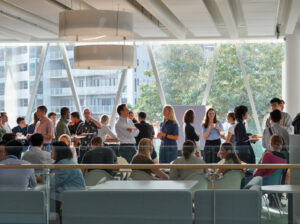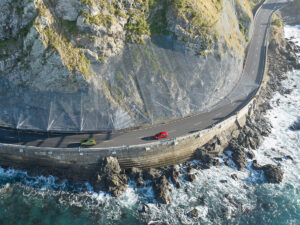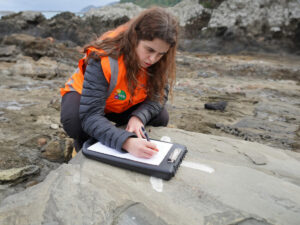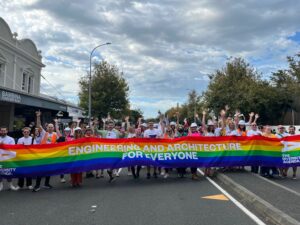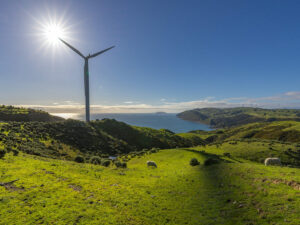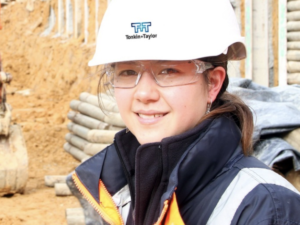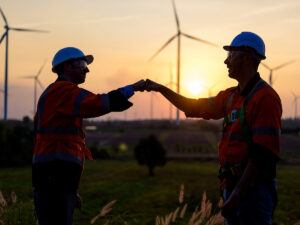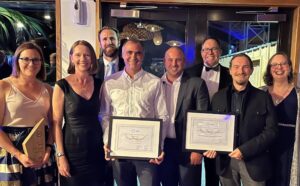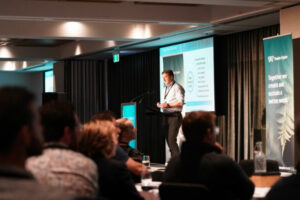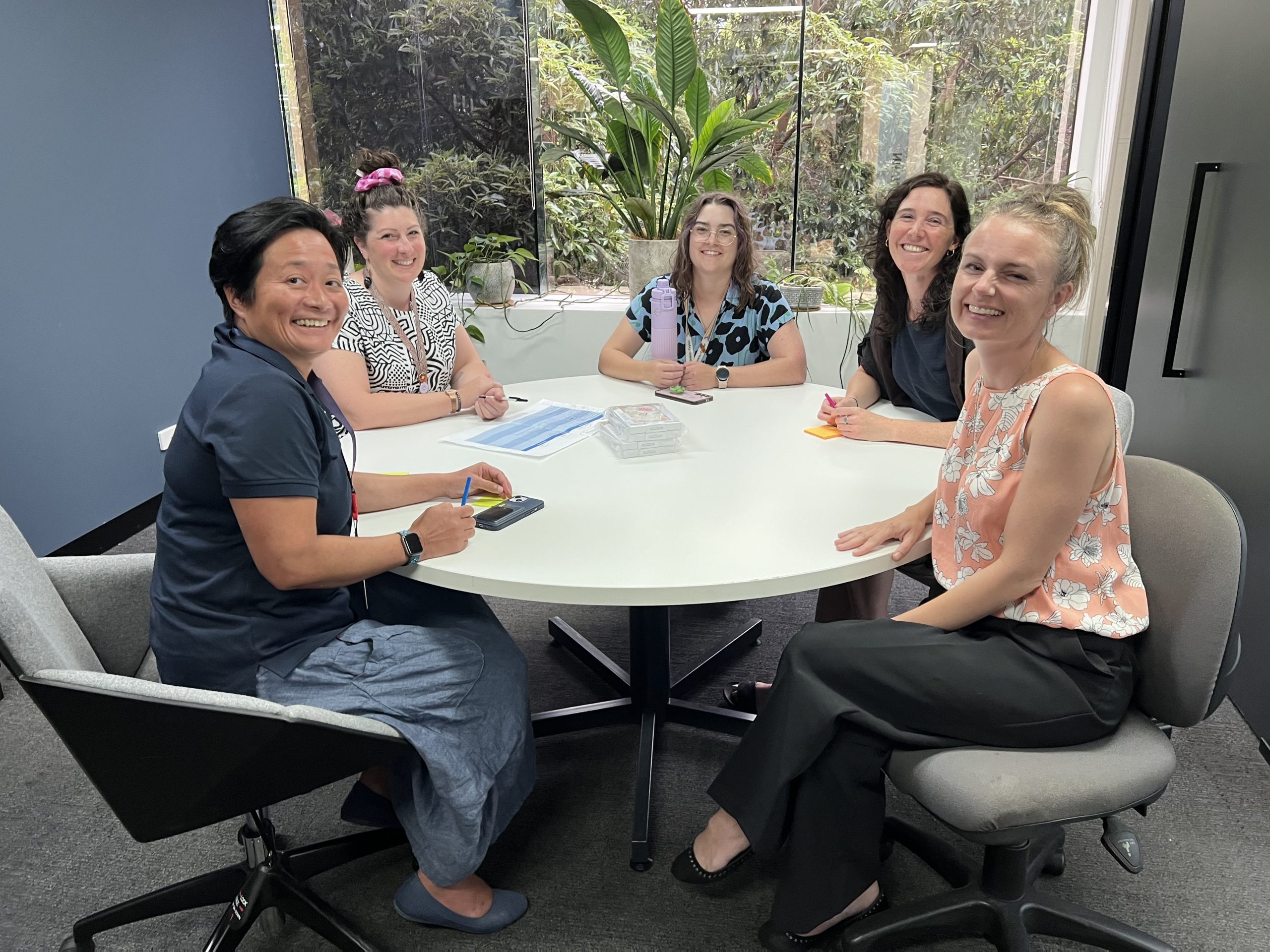We believe the future of engineering is shaped by the diverse perspectives of those who lead it.
International Women in Engineering Day is a moment to recognise and celebrate the remarkable impact women continue to make across our industry. While we’re proud of the progress — including the increasing representation of women across technical roles and leadership — we recognise that meaningful change is about more than metrics. It’s about action, accountability, and creating an environment where all women in engineering are supported to thrive.
From new graduates to seasoned leaders, women at Tonkin + Taylor are helping to reimagine what engineering can look like. We remain focused on strengthening career pathways, closing gender pay gaps, and increasing retention — because equity is not a one-time goal, but a commitment we build on year after year.
Through our Gender Tick accreditation, active university partnerships, transparent reporting, and a culture of inclusion, we are working to ensure that every woman in engineering has the opportunity to lead, grow, and innovate with purpose.
Hear from Lexy Bassett, Martine Rottink, Anna Sleight, and Laura Moller from Tonkin + Taylor on their engineering inspirations, challenges and words of wisdom in this video, and more from Wendy Greatbatch and Martine below:Wendy Greatbatch, Practice Lead – Geotechnical + Geosciences
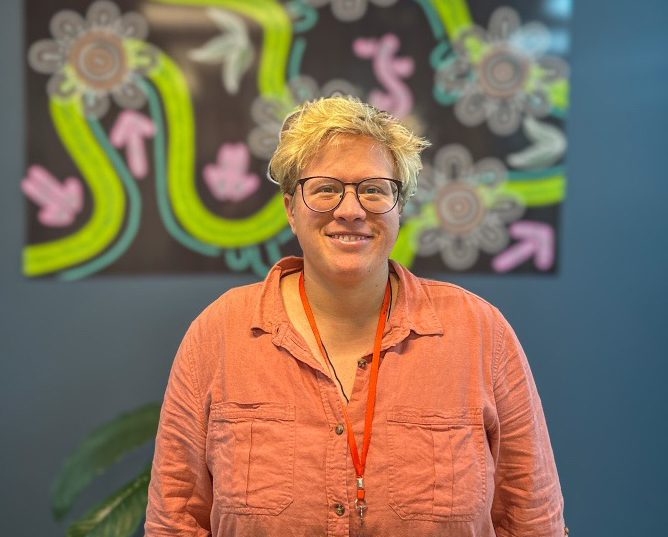 What inspired you to pursue a career in engineering?
I’m an Engineering Geologist working in a team of geotechnical engineers at Tonkin + Taylor. Looking back on it now, my journey to get here has been equal parts predestiny and random accident! I am a Māori/New Zealander mix hailing from a wee kiwi paradise – Uawa, Tolaga Bay (population 800). My mum tells tales of me as a tiny tot picking up handfuls of assorted rocks and filling my pockets wherever we went. People’s driveway, garden beds, kindergarten pot plants – all fair game, and I didn’t discriminate.
Fast-forward to starting my uni journey. I’m sitting in a lecture hall of hundreds, delving into the confusing world of organic chemistry. A latecomer snuck in, sat down next to me at the end of the row, and pulled out a geology book. It turns out she had wandered into the wrong lecture theatre, and I asked her, “What’s geology?” The rest is history.
What advice would you give your younger self starting in this field?
Jump in. The learning never stops, and if it does, you need to make a change. Say yes to the opportunities that make you stop to consider them – that is your gut telling you to give it a go. Save yourself the time of all the overthinking and agonising after that point; it won’t move the dial much.
This year’s theme is #TogetherWeEngineer – what does this mean to you personally?
I am still working in this field because of this sentiment. The moments where you are all around a table (or, nowadays, a teams room!), throwing around ideas and working through a problem to see where the journey leads. This is the magic of engineering for me – hearing the opinions of outstandingly clever, courageous professionals who push the envelope and optimise to get the best result for our clients. Driving past structures/subdivisions/assets with my wife and being able to point it out and say, ‘I did the stability model for that’ (she never gets sick of it!) is wild to me.
What changes have you noticed over the years regarding gender diversity and inclusion in engineering?
In the last few years, I have seen a fundamental shift of more dads taking extended paternity leave and/or taking on the ‘stay-at-home’ title while the kids are small, which is great. Having the mums put their careers on hold when they start to hit their stride has a huge impact. The default setting seemed to be that the mums would hit pause and go to do the incredibly important work of raising the next generation while their male counterparts grind away and add to their years of experience, which means they are higher up the promotion list when the opportunities come along.
This would leave a pretty big gulf that would be hard to close and could even lead to a change in career if the race feels too far gone. By enabling the ‘dads’ to do this more freely (laws and expectations in workplaces), we’re starting to see a shift in this space, with better retention and representation of women in prominent company roles.
What inspired you to pursue a career in engineering?
I’m an Engineering Geologist working in a team of geotechnical engineers at Tonkin + Taylor. Looking back on it now, my journey to get here has been equal parts predestiny and random accident! I am a Māori/New Zealander mix hailing from a wee kiwi paradise – Uawa, Tolaga Bay (population 800). My mum tells tales of me as a tiny tot picking up handfuls of assorted rocks and filling my pockets wherever we went. People’s driveway, garden beds, kindergarten pot plants – all fair game, and I didn’t discriminate.
Fast-forward to starting my uni journey. I’m sitting in a lecture hall of hundreds, delving into the confusing world of organic chemistry. A latecomer snuck in, sat down next to me at the end of the row, and pulled out a geology book. It turns out she had wandered into the wrong lecture theatre, and I asked her, “What’s geology?” The rest is history.
What advice would you give your younger self starting in this field?
Jump in. The learning never stops, and if it does, you need to make a change. Say yes to the opportunities that make you stop to consider them – that is your gut telling you to give it a go. Save yourself the time of all the overthinking and agonising after that point; it won’t move the dial much.
This year’s theme is #TogetherWeEngineer – what does this mean to you personally?
I am still working in this field because of this sentiment. The moments where you are all around a table (or, nowadays, a teams room!), throwing around ideas and working through a problem to see where the journey leads. This is the magic of engineering for me – hearing the opinions of outstandingly clever, courageous professionals who push the envelope and optimise to get the best result for our clients. Driving past structures/subdivisions/assets with my wife and being able to point it out and say, ‘I did the stability model for that’ (she never gets sick of it!) is wild to me.
What changes have you noticed over the years regarding gender diversity and inclusion in engineering?
In the last few years, I have seen a fundamental shift of more dads taking extended paternity leave and/or taking on the ‘stay-at-home’ title while the kids are small, which is great. Having the mums put their careers on hold when they start to hit their stride has a huge impact. The default setting seemed to be that the mums would hit pause and go to do the incredibly important work of raising the next generation while their male counterparts grind away and add to their years of experience, which means they are higher up the promotion list when the opportunities come along.
This would leave a pretty big gulf that would be hard to close and could even lead to a change in career if the race feels too far gone. By enabling the ‘dads’ to do this more freely (laws and expectations in workplaces), we’re starting to see a shift in this space, with better retention and representation of women in prominent company roles.
Martine Rottink, Coastal Engineer
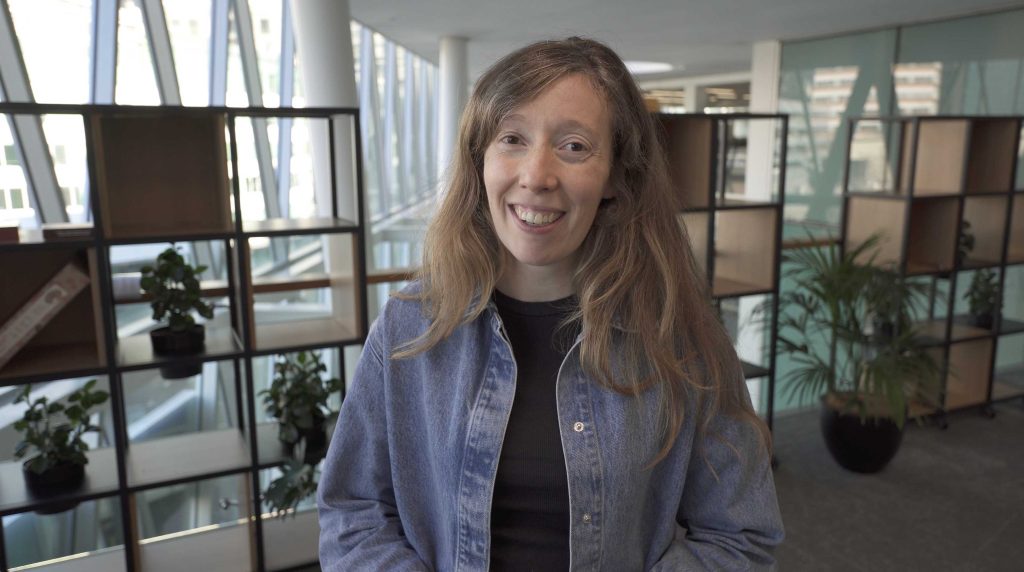 What inspired you to pursue a career in engineering?
My dad inspired me to pursue a career in engineering. He wasn’t an engineer but worked in the city of Delft in the Netherlands, which hosts one of the largest technical universities in the Netherlands. I didn’t really know what to do after high school and he encouraged me to join one of the university’s introductory nights. During this event, I met a student in Civil Engineering who told me about what she did. From that moment on, I was sold.
Can you tell us about a pivotal moment in your engineering journey?
The decision to switch to coastal engineering in New Zealand instead of continuing my job in the Netherlands.
What advice would you give your younger self starting out in this field?
Relax. I have doubted myself for a long time (and still do sometimes) whether I was smart enough to become a civil engineer.
This year’s theme is #TogetherWeEngineer – what does this mean to you personally?
As in any profession, I think our engineering work becomes better if we work together instead of on our own. You can never know everything, and working and engineering together not only improves our work but also makes it more fun.
Can you share an example of a project where collaborating with other women engineers improved the outcome?
The women I worked with generally focused more on the social aspects of engineering. Especially in projects where these aspects are more important, having a woman on the team can be an advantage. During my student years, I once worked with a student team of men and women on a project in South Africa. The project focused on the drainage system of a small city that was not working correctly. I remember the men immediately wanted to focus on the technical system and design a better, bigger drainage system. One of the women, however, found out, through talking to the local people, that the blockage was caused by a build-up of garbage in the system because there were no garbage collection procedures in place. I still think this is a good example of how the best solution to a technical problem isn’t necessarily technical.
What challenges have you faced as a woman in engineering, and how have you overcome them?
My previous job often required me to work with clients who had worked in the water sector for their entire lives and were all men. Sometimes, I felt I had to prove myself more than my male colleagues for my advice to be accepted by them. In general, though, after a while, I always got along with them, and they did accept me.
What changes have you noticed over the years regarding gender diversity and inclusion in engineering?
Well, I haven’t been in engineering for that long, for about 5-6 years now. These changes generally take longer, but overall, I’ve felt that inclusion was and is not a big problem in my daily work environment. All the male colleagues I’ve worked with so far have never treated me differently because I was a woman. In general, I think the fact that we are all a bunch of water and coastal nerds is more important than gender.
What more can the industry do to support and retain women engineers?
We should focus on girls in high school and encourage them to choose a technical education. When I was in high school, I never considered it a realistic option until my dad brought it up, and I think I’m not the only one.
What inspired you to pursue a career in engineering?
My dad inspired me to pursue a career in engineering. He wasn’t an engineer but worked in the city of Delft in the Netherlands, which hosts one of the largest technical universities in the Netherlands. I didn’t really know what to do after high school and he encouraged me to join one of the university’s introductory nights. During this event, I met a student in Civil Engineering who told me about what she did. From that moment on, I was sold.
Can you tell us about a pivotal moment in your engineering journey?
The decision to switch to coastal engineering in New Zealand instead of continuing my job in the Netherlands.
What advice would you give your younger self starting out in this field?
Relax. I have doubted myself for a long time (and still do sometimes) whether I was smart enough to become a civil engineer.
This year’s theme is #TogetherWeEngineer – what does this mean to you personally?
As in any profession, I think our engineering work becomes better if we work together instead of on our own. You can never know everything, and working and engineering together not only improves our work but also makes it more fun.
Can you share an example of a project where collaborating with other women engineers improved the outcome?
The women I worked with generally focused more on the social aspects of engineering. Especially in projects where these aspects are more important, having a woman on the team can be an advantage. During my student years, I once worked with a student team of men and women on a project in South Africa. The project focused on the drainage system of a small city that was not working correctly. I remember the men immediately wanted to focus on the technical system and design a better, bigger drainage system. One of the women, however, found out, through talking to the local people, that the blockage was caused by a build-up of garbage in the system because there were no garbage collection procedures in place. I still think this is a good example of how the best solution to a technical problem isn’t necessarily technical.
What challenges have you faced as a woman in engineering, and how have you overcome them?
My previous job often required me to work with clients who had worked in the water sector for their entire lives and were all men. Sometimes, I felt I had to prove myself more than my male colleagues for my advice to be accepted by them. In general, though, after a while, I always got along with them, and they did accept me.
What changes have you noticed over the years regarding gender diversity and inclusion in engineering?
Well, I haven’t been in engineering for that long, for about 5-6 years now. These changes generally take longer, but overall, I’ve felt that inclusion was and is not a big problem in my daily work environment. All the male colleagues I’ve worked with so far have never treated me differently because I was a woman. In general, I think the fact that we are all a bunch of water and coastal nerds is more important than gender.
What more can the industry do to support and retain women engineers?
We should focus on girls in high school and encourage them to choose a technical education. When I was in high school, I never considered it a realistic option until my dad brought it up, and I think I’m not the only one.



